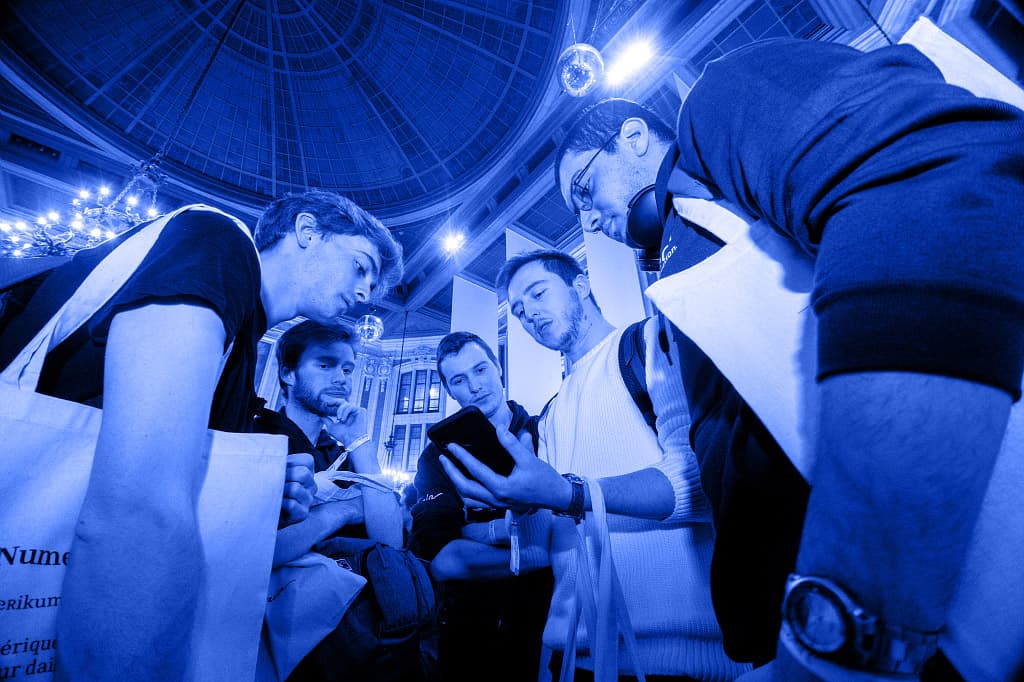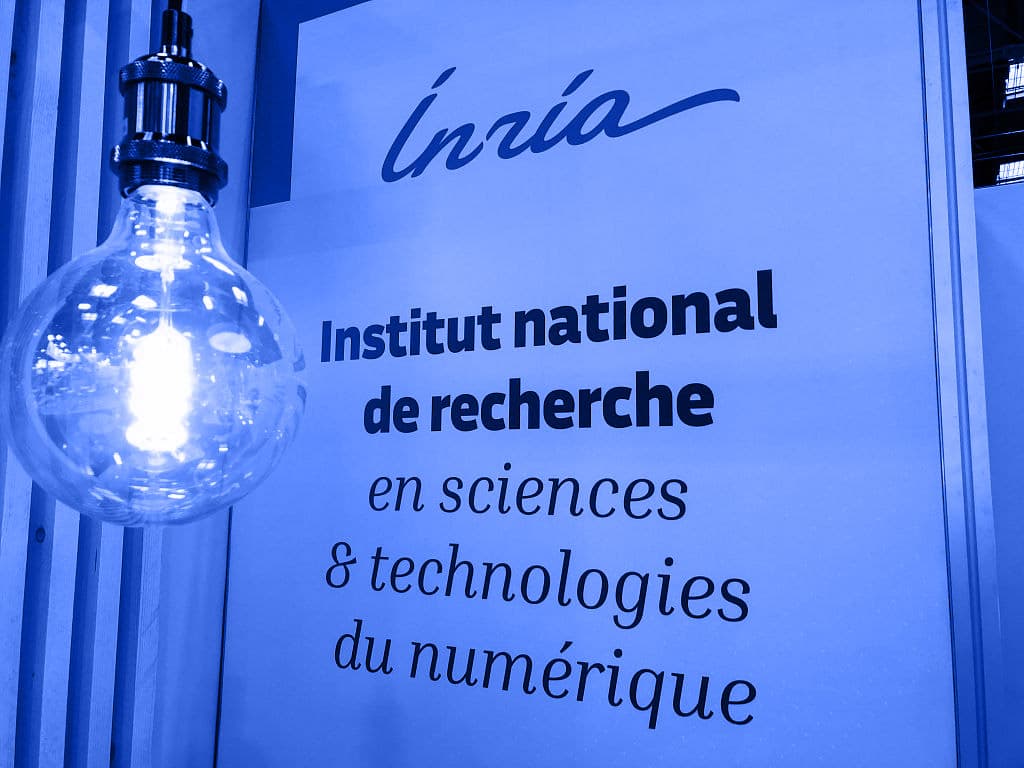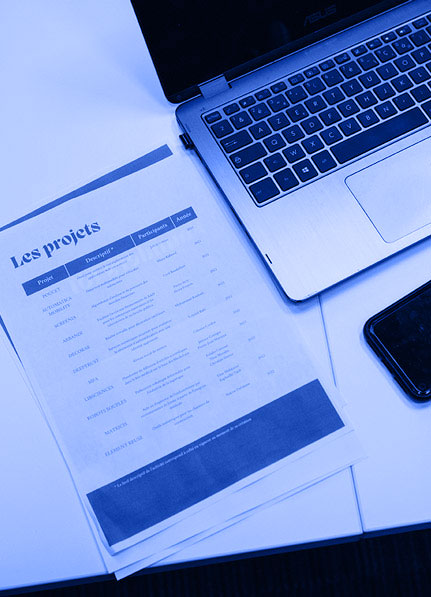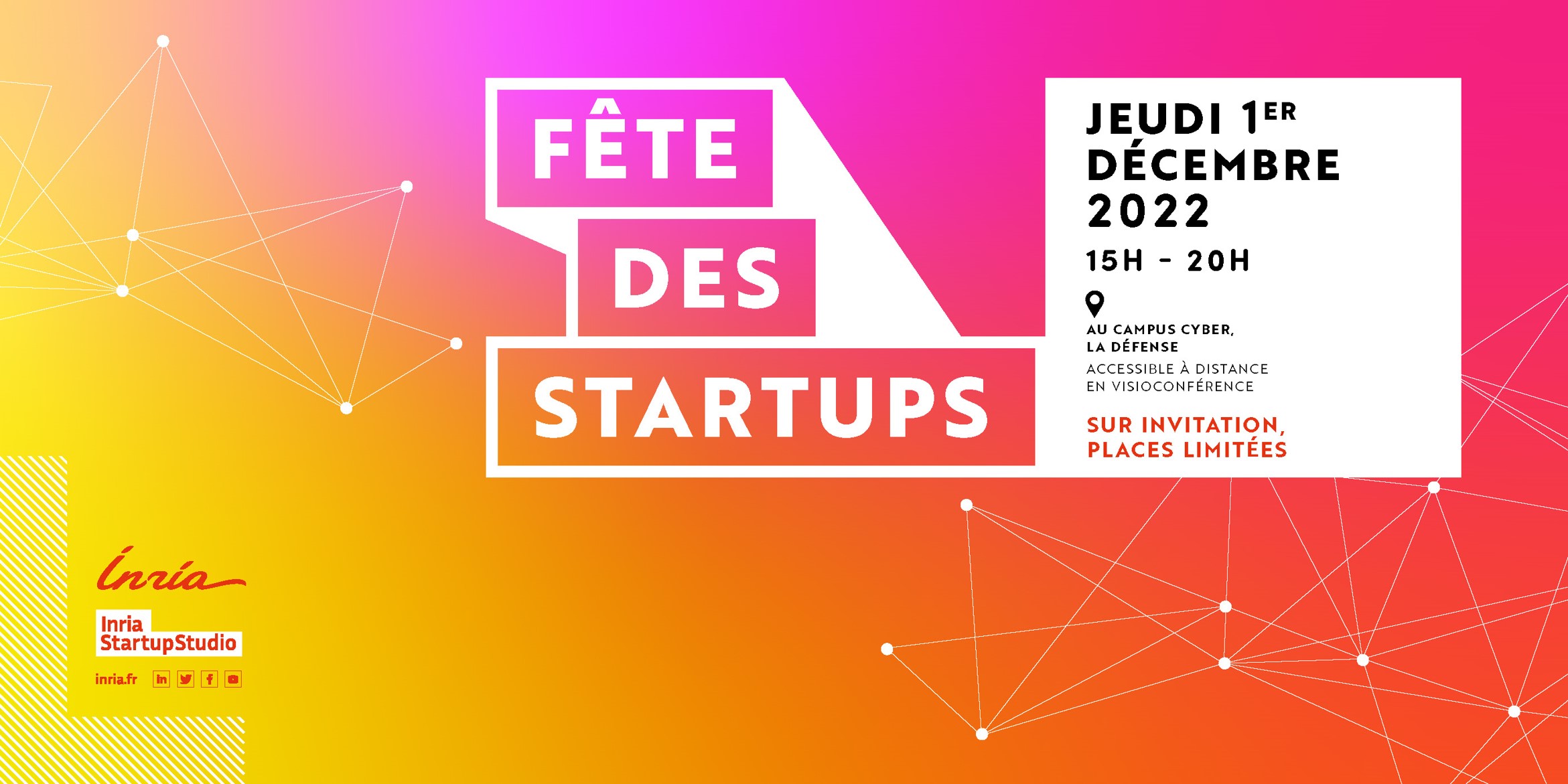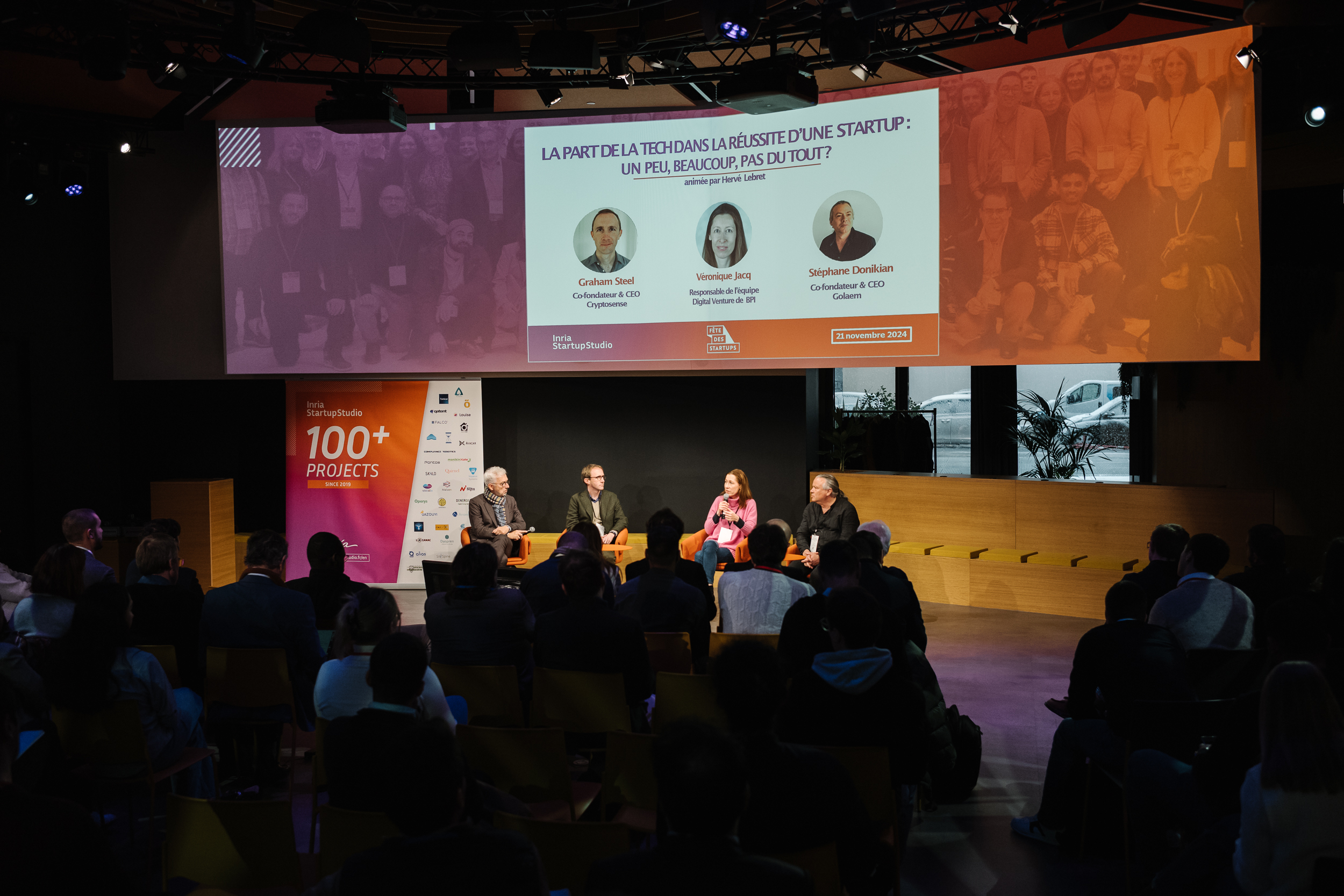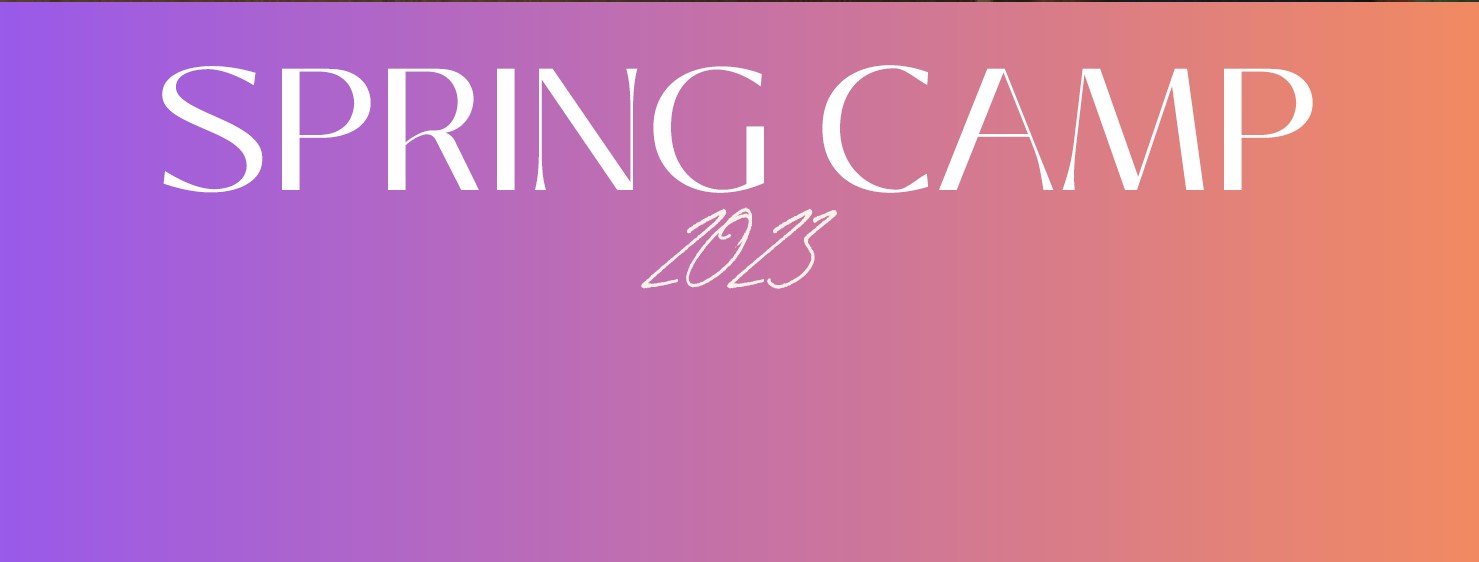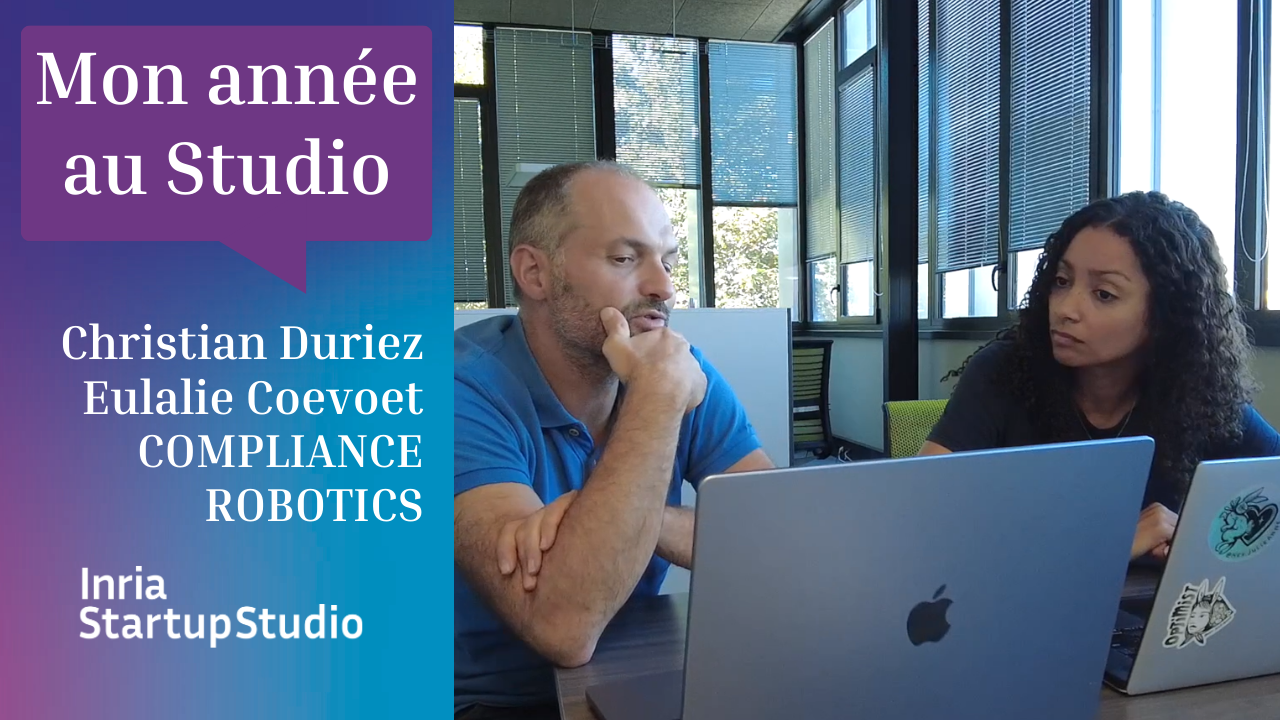
My year at the studio by Compliance Robotics
Immerse yourself in the story of a year of entrepreneurial exploration in ISS program, through alumni testimonies. Whether they created an innovative business at the end or not, everyone experienced an engaged, enriching and personal year. Listen to them and discover through the videos and interviews, their challenges, highlights and major learnings; without forgetting the power of the meetings that make the history of startups.
Compliance Robotics: “The startup studio pushes us to dream bigger”

Like research, entrepreneurship is long-term. But if the similarities between these two long-term adventures are numerous, the change in context requires those involved to adopt a new outlook, as demonstrated by the leaders of the Compliance Robotics project, a startup currently being structured supported by Inria Startup Studio . Explanations.
A shock team….
Developing a new generation of flexible robots capable of carrying out tasks impossible for the rigid robotic arms usually used in industry: this is what brings together Eulalie Coevoet and Thor Bieze, research engineers, supervised by Christian Duriez, research director at lnria, and joined by Alexandre Kruszewski, University Professor at Centrale Lille, to form Compliance Robotics.
A team of researchers who have already known each other for around ten years, and formed around Christian Duriez, already co-founder of another startup in the past… All the ingredients then seem to come together for the research project to transform into entrepreneurial adventure.
“During my first entrepreneurial experience, I was only the scientific referent of the project, I was not as involved in decision-making as today. Furthermore, it was a simulation project medical carried out to respond to an order. It was not a question of finding outlets for an innovation as is the case with Compliance Robotics”, however specifies the latter, happy with the support he was able to find within of the Startup Studio, in order to give shape to the future company and prepare all the project leaders.
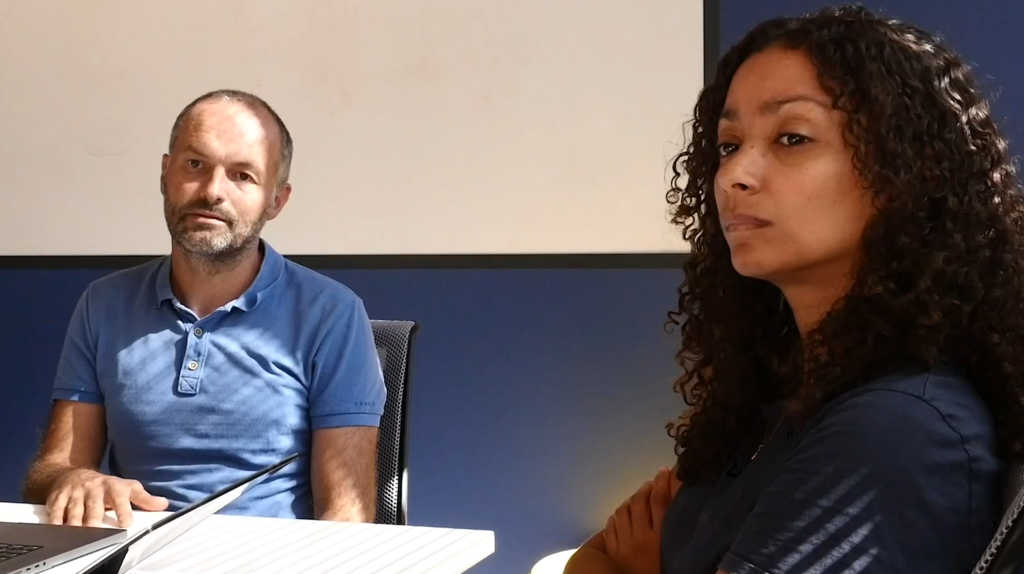
…and a promising start
“The project really began a little less than two years ago, when we obtained a grant from the “Start-AIRR” program of the Hauts de France region in order to demonstrate the technical feasibility of an idea for a new design of flexible robot. This is what allowed us to carry out an initial technical feasibility study before joining Inria’s startup studio. Our team knew each other very well having worked within the CRIStAL laboratory and the Inria Defrost team”, explains Alexandre Kruszewski, who supervised Thor Bieze’s thesis work.
With Eulalie Coevoet, they were quickly won over by Christian Duriez’s proposal to form a company to develop concrete applications for their flexible robot technology.
Train yourself in the basics of entrepreneurship
Research and undertake: different requirements
“Coming from the academic world is not the easiest way to do business, since in this case there is the temptation to develop the best possible robot, whereas an entrepreneur seeks above all to respond to a need for the most cost-effective way possible. We must therefore think from the start about how to optimize the use of available resources to carry out a task and not try to build the best possible prototype in relation to the current state of knowledge,” adds Alexandre Kruszewski. .
He is joined by Christian Duriez who recognizes for his part that the level of requirements is not the same from one world to another: “In research, we can make prototypes which sometimes only work long enough to publish the results of our work. From now on, we must ensure that the robots we produce for our future customers work over the long term!”
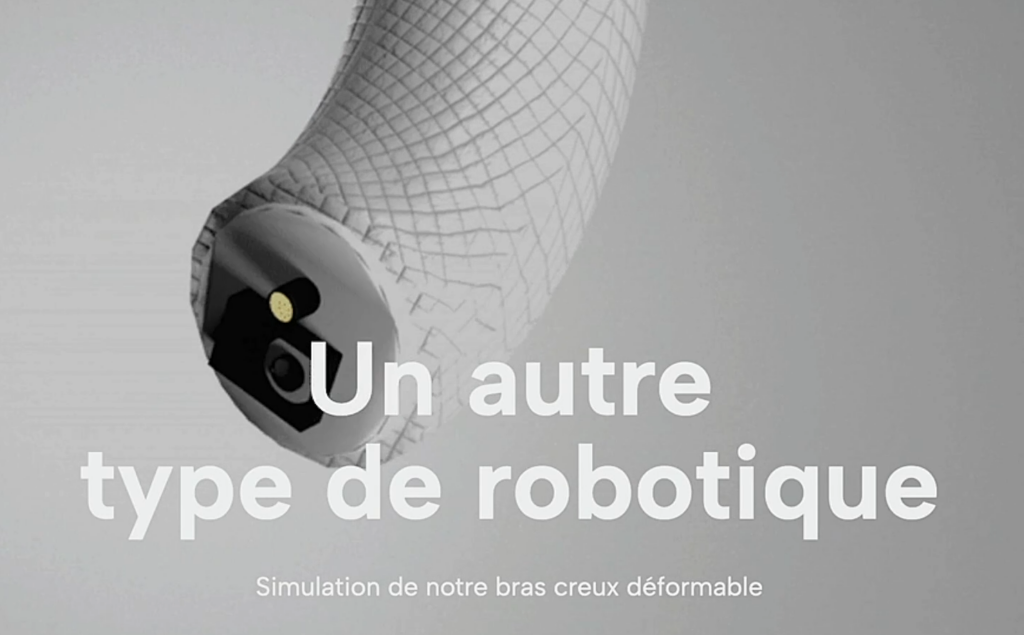
The reality of the entrepreneurial environment
“We are all convinced that we are doing something that will move the lines. But ISS allows us to move away from certain reflexes specific to researchers and put ourselves in the place of manufacturers. Our innovation is a powerful technological push, but it still needs to be tested and adapted to specific and concrete use cases. ISS particularly helps us find our market feat, by meeting potential customers in the field,” explains Thor Bieze.
“We spend a lot of time discussing with members of the ecosystem such as integrators for example, in order to see if there are any holes in the racket between the existing offer and the needs expressed by customers. You have to find the product or concept that will allow the startup to stand out in its market. ISS gives us a good foundation for entrepreneurship and for learning the jargon of entrepreneurship. I didn’t know what a technology push, a market feat or a pre-seed raise was before! Finally, the program pushes us to dream bigger. It’s also a necessary change when you become an entrepreneur.”
Strategy at the heart of the adventure
Thanks to the support offered to Compliance Robotics on the Lille Inria site, or to the boards meeting every two weeks in order to challenge the decisions taken by the members of the team, Inria Startup Studio has enabled them to embrace fully their new role, as Eulalie Coevoet indicates: “ISS has allowed us to refine our strategy to enter this vast market that is that of industrial robotics. I would never have imagined leading an entrepreneurial adventure without these conditions.“
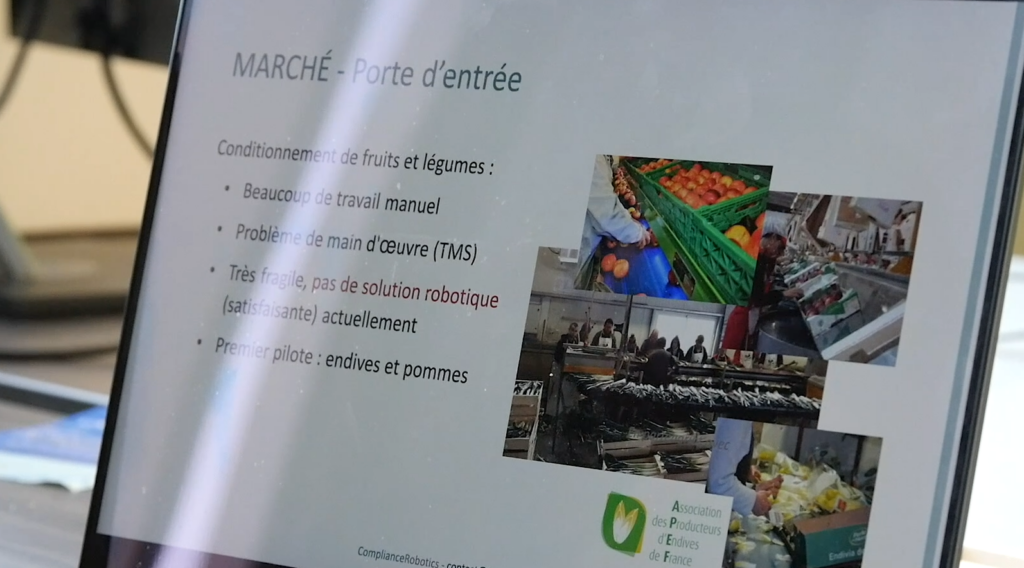
“ISS challenges us by pushing us to ask ourselves the annoying questions, and by putting us face to face with the decisions that it is necessary to make, on the choice of structure, the distribution of shares… Thanks to the numerous stages, we never fall into routine and ease, on the contrary, we quickly adopt a dynamic necessary to make the project evolve.”
From now on, the team is seeking to develop POCs with certain agro-industrial partners, particularly around its deformable robotic conveyor which combines the precision of pick and place robots and the speed of conventional conveyors.
“The challenge is to avoid developing things that are too far removed from the real needs of our targets. This is one of the strong points of the year of support at ISS. It also allowed us to learn how to pitch our project and to meet potential investors and other entrepreneurs who share our experience”, concludes Christian Duriez, who is finally working to formally structure Compliance Robotics as a company by 2024.
Did you miss it? Read the article by Brij Srivastava, co-founder of Nijta, Thibault Lenard, co-founder and CEO of Operys and by Marie Paindavoine, founder of Skyld.
Publication date: 10/04/2024
Want to get started ?
